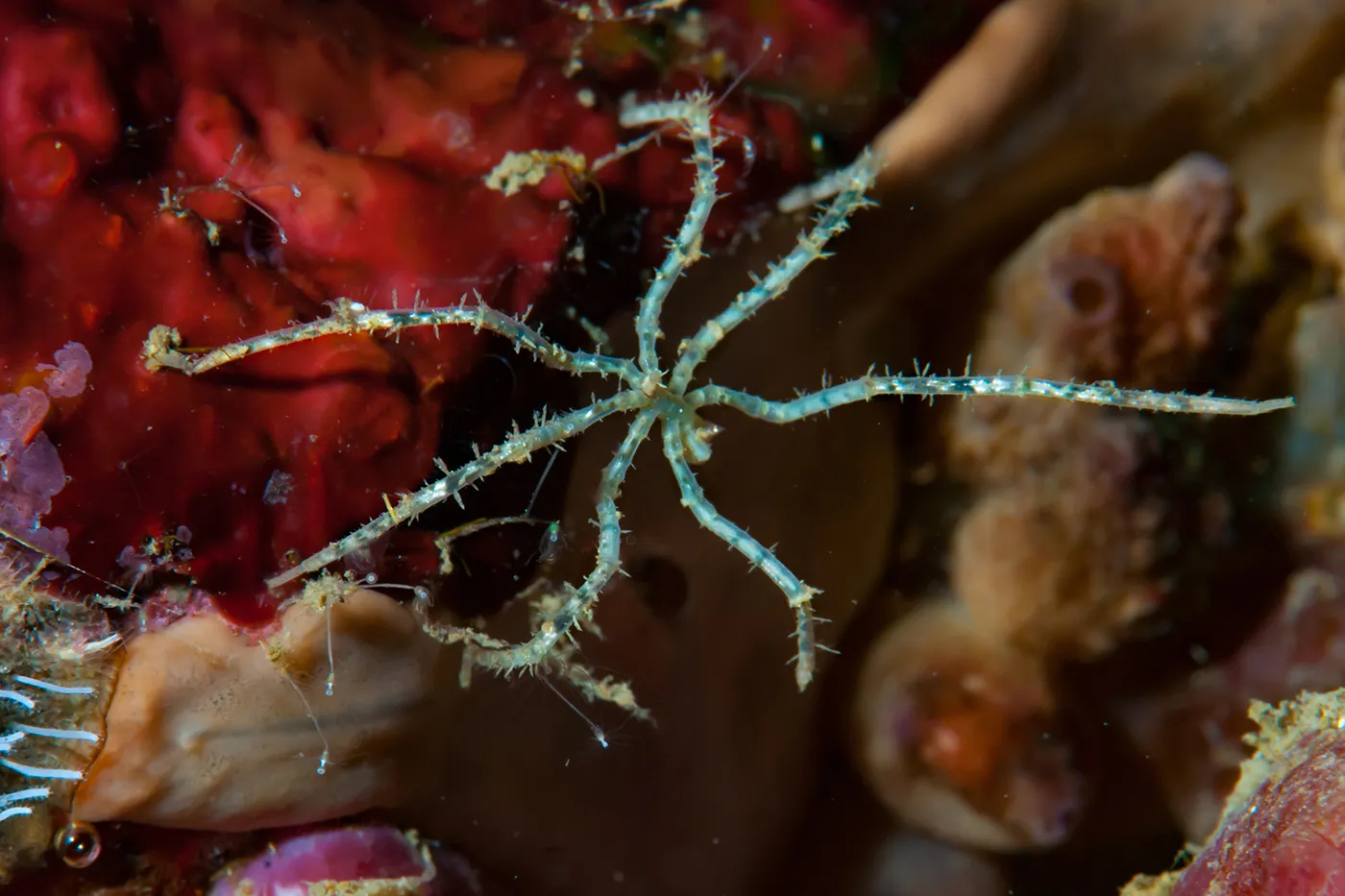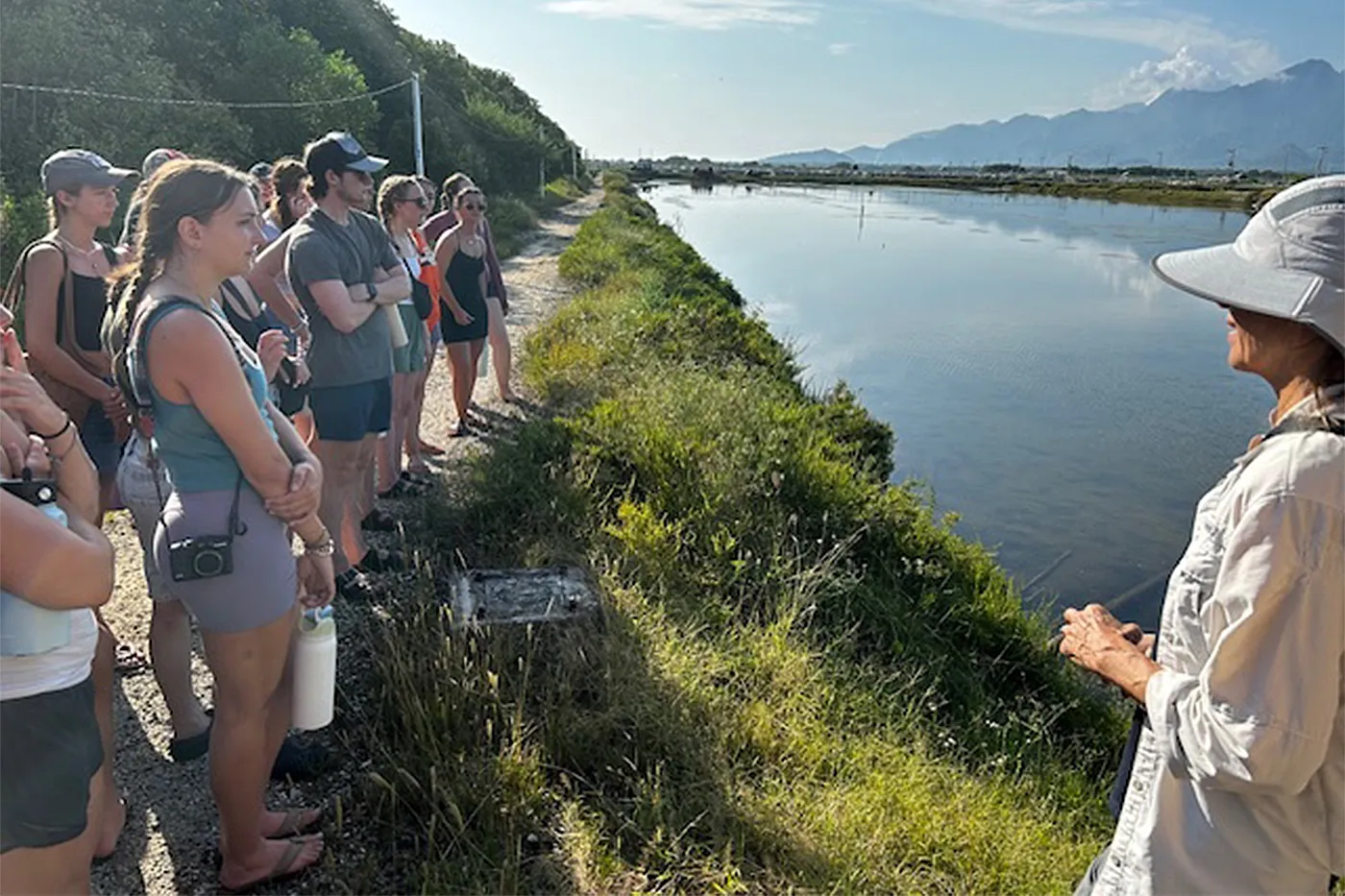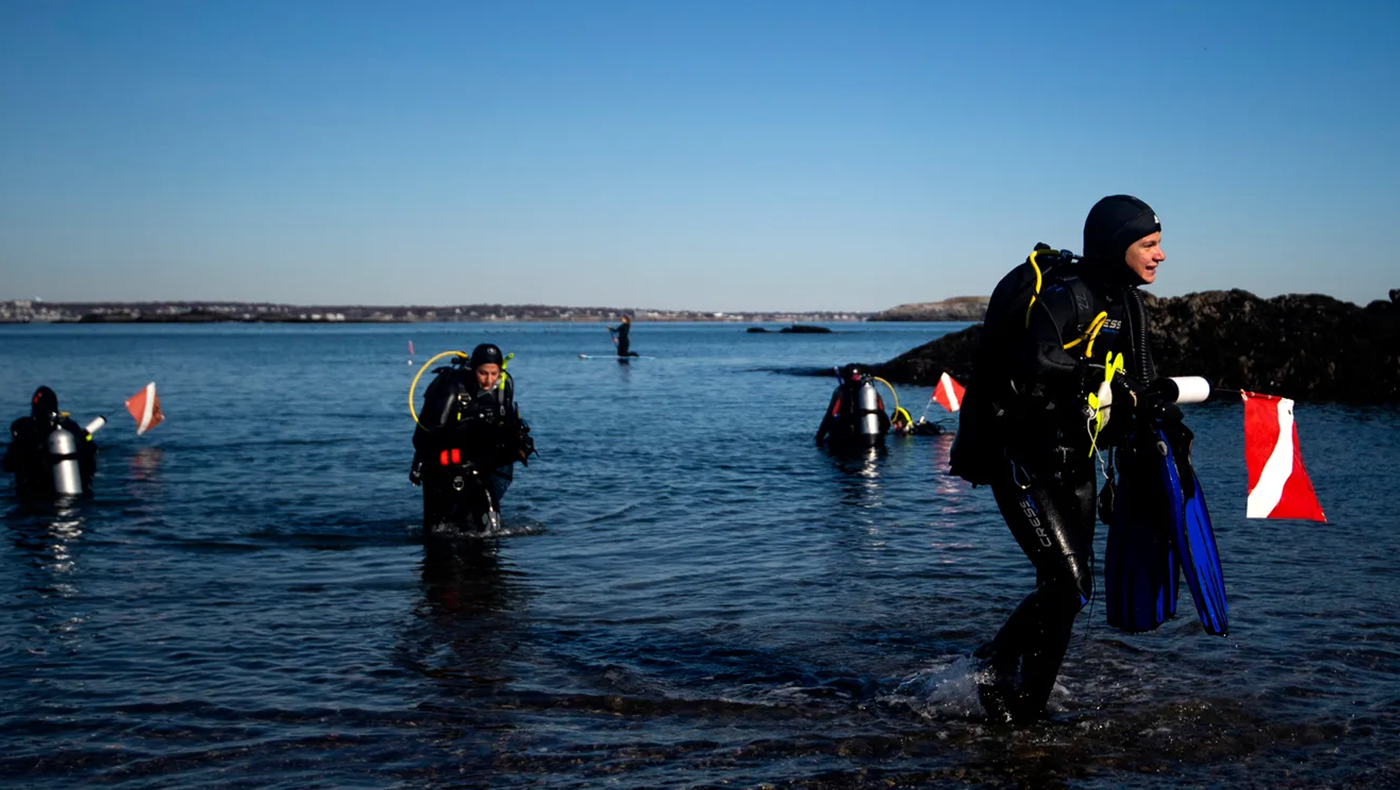COS News
News

Connie Phong wants to know how an animal adapted to live in a highly specialized environment — just below the freezing point for seawater — responds to warming oceans.
How Northeastern scientists are using Antarctic sea spiders to study life on the edge
News

Fleury Augustin Nsole Biteghe has identified a way to target two of the deadliest cancer types with chemotherapy drugs but without the harms associated with chemotherapy.
Northeastern researcher uses light to target and kill cancer cells
Showing 191 results in Marine and Environmental Sciences

In Bali, Northeastern students see resilience and innovation at the heart of climate change adaptation
Students studied the unequal ways that climate change is effecting island nations like Bali, one of more than 17,000 islands in Indonesia’s archipelago.

What if sensors could spot plant stress in real time? These Northeastern researchers made it happen
Researchers at the Kostas Research Institute in Burlington developed sensors that will change color to indicate issues with a plant’s health.

What is ‘weather whiplash’? And why scientists say it’s becoming the new normal
In the days before a catastrophic flash flood swept through rural Texas over the July 4 weekend, the region was parched by drought. Even as search crews trudged through mud and debris in search of victims — at least 135 people lost their lives — some parts of the county remained super dry. The rapid swing between […]

What made the Texas flash flood so deadly and how AI could improve forecasting
The deluge that surged through Central Texas over the Fourth of July weekend devastated the hill country and shocked the world with its intensity and loss of life. The Guadalupe River at Kerrville rose from 1.73 feet to 34.29 feet in three hours on July 4, according to a river gauge maintained by the federal government. The […]

What are runnels, the man-made channels that help restore salt marshes?
Runnels, shallow man made channels, help keep salt marshes healthy according to Jennifer Bowen, professor of marine and environmental sciences, a task that is becoming harder as sea levels continue to rise.

These Northeastern students befriend a 500-pound sea turtle and a 33-year-old penguin as co-ops at the New England Aquarium
Two Northeastern students, Elliot Tong and Noah Brown, are co-oping at the New England Aquarium. There they are learning about conservation and the daily caretaking of sea animals.

Should we add a Category 6 hurricane to the Saffir-Simpson scale? Experts weigh in
The National Oceanic and Atmospheric Administration is predicting an above-average Atlantic hurricane season, and two Northeastern professors are weighing in on whether or not the Saffir-Simpson scale (used to measure hurricanes) should be revamped.

As more deadly twisters strike the South, ‘Dixie Alley’ is becoming the new ‘Tornado Alley’
Chengfei He, assistant professor of marine and environmental sciences, helps explain why tornados are occurring more in southern states, and some of background science to how they work.

What impact would a proposed change to the Endangered Species Act have on marine plants and animals?
Dan Distel, research professor at Northeastern University’s Marine Science Center. weighs in on how the proposed regulatory changes would impact the Endangered Species Act.

Plastics found to be abundant at deep-sea levels, new research reports
Aaron Stubbins, professor of marine and environmental sciences, and Northeastern researchers have discovered have uncovered a “light smog” of microplastics drifting below the surface of the world’s oceans.

Three Seas at 40: How Northeastern’s immersive marine biology program transforms students into scientists
Dive deeper into the Three Seas program offered by the Marine Sciences Center at Northeastern University!

Windsyr Maughan ’25, MS Environmental Science and Policy
Windsyr Maughan '25, MS environmental science and policy, shares her experiences as a COS student.